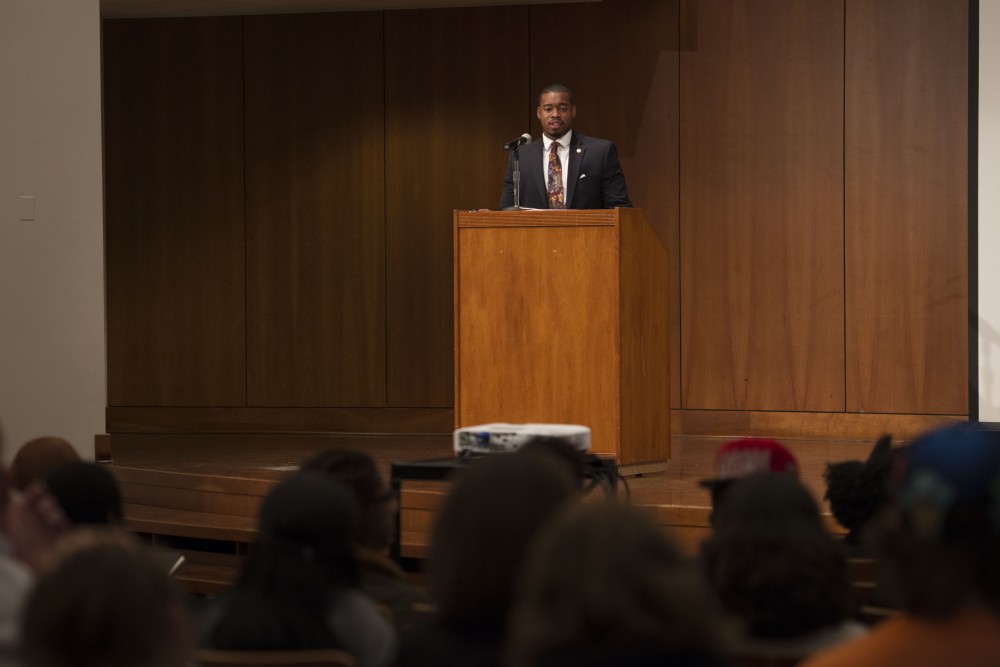Leighton Watson dials in on finding social injustice solutions

GVL / Luke Holmes – Leighton Watson held a lecture, The Power of Student Voices, in the Cook-DeWitt Center Monday, Sept. 26, 2016.
Sep 29, 2016
The issues of social injustice and police brutality have risen to the spotlight in recent years, leading to questions surrounding the way the U.S. is handling these concerns. Leighton Watson, former student body president at Howard University, is leading the charge to look for solutions to the problem of social injustice.
Watson, a Grand Rapids native, visited Grand Valley State University Monday, Sept. 26 to speak to Lakers about his personal story in the fight against social injustice and how to find solutions within individual communities.
The keynote address included more specific topics including Colin Kaepernick’s personal protest, the death of Eric Garner and race-related unrest in Ferguson, Missouri.
The presentation was held as part of GVSU’s civic assembly week, where students are encouraged to actively engage in conversation about social and political issues and have their voices heard.
Watson began an active approach to finding solutions during his senior year of college as he became increasingly concerned about social injustices after the deaths of Michael Brown and Eric Garner.
“We need to work toward long-term systemic change,” Watson said. “We need to not only talk about the problem but to actually offer a solution as well.”
After seeing the opportunity to reach a large audience at a housing meeting on campus, Watson orchestrated an impactful photo called “Hands Up,” where a large group of people stood with both hands in the air to represent the deaths of unarmed black men by police officers.
This photo then made national headlines and spread to other schools, organizations and sports teams recreating the photo.
Watson went on to visit multiple communities across the country to help offer solutions, organize movements and talk about different concerns. He also offered commentary about incidents of police brutality and social injustice on CNN, CSPAN, NPR and BET.
His involvement around the country gained him the attention of President Barack Obama, who sought Watson’s advice during the Ferguson unrest.
He was then appointed by Obama to the 21st century taskforce on policing and asked to help come up with solutions for police brutality, social inequality and crisis management.
Watson has since organized various groups and organizations and worked with government officials on proposed legislation to help protect communities and police officers.
“I don’t think of myself as an activist,” Watson said. “All I’m trying to do is shorten the distance between what America is on paper and what America is in practice.”
The lecture transitioned into the importance of coming together in order to find solutions and hold open discussions.
“When he said the first step is listening and then having a conversation, that really had an impact with me,” said Justina Rolls, an attendee of the event. “I never really understood my place in all of this because I’m not a member of the affected community, but this affects people I care about and I just want to do what I can to help.”





















